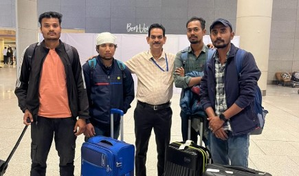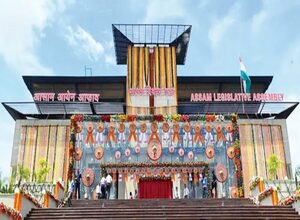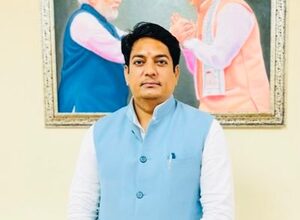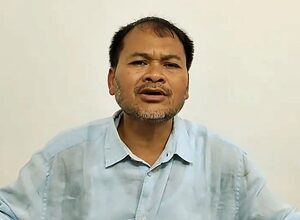Caste census discourse: A manufactured buzz with foreign influence, says DisinfoLab report

New Delhi, Feb 20 (IANS) US President Donald Trump on Thursday questioned the necessity of spending $21 million on voter turnout in India through USAID, insinuating that it was part of a broader agenda by the previous Biden administration to “get somebody else elected.” These comments have led to a fresh political slugfest, with the BJP accusing the Congress of collaborating with foreign forces to sway Indian elections.
Amid all this, a study by DisinfoLab, titled ‘The Invisible Hands: Foreign Interference in Indian Elections 2024’, has gone viral, adding fuel to the fire.
The report examines media coverage surrounding Indian elections, particularly during the election season, and suggests that there has been an orchestrated attempt by foreign entities to influence Indian voters.
The report claims that global media, especially Western outlets, have been actively trying to shape the election narrative. The report points out that media coverage often targeted key election-related issues, including India’s Election Commission and the timing of the Lok Sabha elections, which were held during the intense summer heat in 2024. According to the study, the global media’s relentless criticism and framing of these issues appeared to have a strategic intent.
One of the most striking findings in the report revolved around the “caste census”, a topic that gained significant traction in recent years attributable to Congress leader Rahul Gandhi pitching for it time and again.
The study notes a significant spike in discourse around the caste census, which was purportedly manufactured through foreign media channels. The report also highlighted that a surprising volume of literature on caste census was churned out from France, suggesting that the conversation around it was heavily influenced from abroad.
“The buzz on the caste census was a manufactured narrative that was activated on X (formerly, Twitter) for some agenda, and was promoted heavily by the French media,” the report underlines.
This pattern of manipulated discourse is particularly alarming, as the study identifies distinct peaks of activity on certain days, implying a coordinated effort to amplify the narrative on specific occasions.
“There are distinct (traffic) peaks on certain days, which suggests that the buzz around the caste census was manufactured. This was a red flag,” the report adds.
The study becomes even more relevant in light of Rahul Gandhi’s repeated calls for a caste census ahead of the 2024 Lok Sabha elections. The BJP has used these calls to accuse Gandhi of working under the influence of foreign powers, echoing the growing concern about external interference in Indian politics.
The report says a closer examination of the data reveals that tweets (X) mentioning Christophe Jaffrelot, a prominent French political scientist and Indologist, surged in 2021, coinciding with his publications that sparked a push for caste census discourse.
According to the report, Jaffrelot’s work played a pivotal role in shaping narratives around caste issues, with his views being frequently quoted not only by French media but also by Indian news outlets. The study found that this increased activity on “Twitter” now X around Jaffrelot’s contributions, combined with funding from the HLF (US-based Henry Luce Foundation), continued to intensify until 2024.
An analysis of the tweets mentioning Jaffrelot from 2016 to 2024 reveals key topics being discussed in relation to him. These topics include elections and voting, caste issues, China-India relations, Muslims and religion, PM Modi, the BJP, women’s issues, COVID-19, and India-Pakistan relations. Of particular interest is the sudden surge in tweets discussing caste issues, especially those related to the caste census, beginning in 2021, says the report.
“This sudden shift in focus to caste discourse, particularly caste census, is peculiar, and apart from the HLF funding, there appears to be no particular trigger for this intense attention,” the report notes. This shift stands out against the backdrop of other recurring topics such as Elections and COVID-19, which had more predictable peaks in the years leading up to elections and the pandemic.
Further analysis of the seasonal variations in the frequency of these topics shows a clear pattern: tweets on election-related topics peak in the winter and spring months, aligning with India’s election cycle. Interestingly, the peaks for caste-related tweets are nearly identical, suggesting that discourse around caste issues and elections are closely intertwined.
A heatmap generated from the data reveals that caste issues show a strong correlation with discussions around elections and criticism of PM Modi and the BJP. This indicates that conversations on caste issues are often linked with electoral discourse, particularly in contexts that critique the ruling government, the report observes.
“As the 2024 elections approach, the discourse surrounding the caste census is likely to intensify, with foreign influence and manufactured narratives continuing to play a role,” the report pointed out.
–IANS
brt/dan




